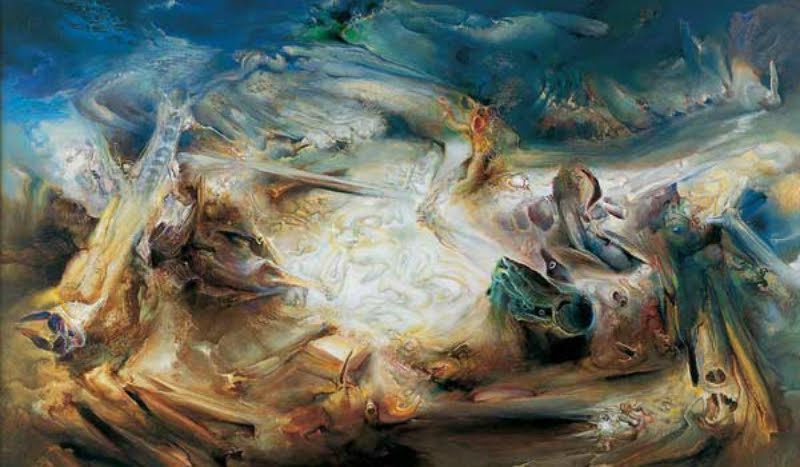Many of the traditional forms our media take, including their narrative structure, were determined by the technology that delivered them. Communication technologies have since broken down many of the distinctions between these delivery methods, although we are still stuck with these legacy narrative structures. This of course is the gap or problem that transmedia steps in to fix. Currently transmedia works in the same narrative forms of traditional technological delivery, ie you can make a movie and an accompanying soundtrack, but rarely would you make a movie that can also be listened to purely as audio on your ipod, say (unless you're Daft Punk). For effective narrative transversal across mediums what is needed is a new way of considering narrative forms.
I would suggest that narratives take three different forms that are consistent across media, or if you rather a continuum with three distinct sections. We can consider narratives as presented as either short form, standard form or long form. In the case of moving image, short form would encapsulate ads, youtube videos, short films, sketches, even up to entire 'episodes', basically stuff under an hour, though I would say over half an hour it would be rapidly sliding into 'standard form'. Standard form moving image is simply a film - it's requires a certain dedication of time, but could be digested in one sitting. Long form moving image would include mini-series, entire tv series/season, and movie trilogies/series etc.
Next lets consider text; short form would include tweets, blogs, brief news articles. Standard form would be longer news coverage or blogs, reports, articles, short stories, comics etc. Long form is the book, graphic novel or series of books. Sound and music is fairly straight forward; we have sound effects, catch-phrases, sound bites, right up to whole songs could be short form, then longer pieces to entire albums would be standard form, with longer albums (ie double albums, etc), or series of albums or podcasts, and concerts as long form. Games seem a little tricky, although they definitely map onto the same structure, short form is casual games, typically puzzlers, and social games, standard form is an entire game 'episode', with longer form being a long game, or series of games, and also MMORPGs, etc.
Clearly there is a lot of cross over in these forms, hence why they should be seen as a continuum, but this has always been the case. Just as Dickens released short/standard form texts in the form of chapters, which were later then sold as a long form novel, so too do tv producers release short/standard form episodes which are later sold as box sets. Often the longer form media are constructed from elements of the shorter form media, just as a MMORPG might include missions or mini-games. The important point here is not to pin down different media into neatly aligned categorical boxes, but rather to use this consideration of length forms to understand how users/the audience consume narrative across different media.
The essential idea here is that what is important when considering narrative structure is the amount of time and attention it will take in individual to consume it. In the over saturated, easily copyable content market, scarcity no longer determines value for the consumer. Rather the standard mode of value assessment, on a monetary level, seems to be necessary time for consumption. We happily pay more for an album then a single track on itunes, yet no matter how great a song is, even if it were uniquely brilliant, we would likely stifle at paying as much as a whole album for it. Similarly we happily accept that the cost of DVD box set of a tv series be more then that of an individual movie, even if the production costs (for the content) and quality of the film vastly outweigh that of the tv series.
As we consolidate the technological means with which we consume various media (ipad anyone), it becomes imperative from a business point of view that content producers understand the innate way content is valued by the consumer in this space. Likewise, those values are an important consideration for the transmedia producer as she constructs narrative elements across multiple media. My initial advice to a transmedia producer would be this - give away your short form content for free. Most consumers already view it as discardible and of little monetary value, so use it to convince them of the quality of your content, and to draw them in to the standard and long forms of your narrative, for which they will most likely be happy to pay and invest their time.
